The 12,700 acres of pristine slopes on the east side of the Wasatch Mountains sit right in Morgan County’s backyard, but most residents will never get to see them, not unless they have $500,000 to spend for membership at Peterson, Utah’s new luxury ski resort: Wasatch Peaks Ranch.
From being nestled in the mountains in such a way that it’s hidden from below, to having a website sparse with any kind of information, it is obvious that this developing ski resort is private – and would like to stay that way.
The resort makes it very clear that it would like to remain mysterious. The website does not list any contact information. The majority of the results for “Wasatch Peaks Ranch” on a web search are links to other news sources writing about it, but any information directly from the resort requires a much deeper search.
The only sentence on the homepage of their website reads: “Wasatch Peaks Ranch is a private community and club in Utah’s Wasatch Mountains where members can enjoy year-round outdoor activities that start with skiing and golf and continue as far as your imagination can take you.”
However, with such an expensive and exclusive membership, many Morgan County residents won’t be getting to imagine anything about this luxury resort next door.
The resort is planning on having ski runs and lodges, but to stay open all year, they will also have trails and a golf course created by Tom Fazio, a famous golf course architect whose work includes the Glenwild course in Park City.
A representative from Wasatch Peaks Ranch could not be reached for comment.
An uphill battle
Five years into its development, the resort has already been wracked with controversy in local news, mainly because of a legal battle between the county, the resort and six residents – Whitney Croft, David Pike, Robert Bohman, Brandon Peterson, Shelley Paige and Cindy Carter – who feel that the citizens should have more of a say in the matter.
Croft, Pike, Bohman, Peterson and Paige sponsored a referendum, which allows citizens to put proposals, laws and political issues on the ballot. These sponsors, with help from Carter, filed an application for this referendum, which centers around a zoning change requested by Wasatch Peaks.
In an effort to make their voice heard, this group of six endured many intimidation tactics from Wasatch Peaks Ranch, including a lawsuit seeking $10 million in damages from the resort.
Before filing a lawsuit against these residents, Managing Director Ed Schultz threatened two of the sponsors’ relatives that this action would lead to a lawsuit.
Carter explained that they decided to continue despite this threat and about a week and a half later, they were sued for $5 million, which Wasatch Peaks Ranch upped to $10 million further into the case.
“So from our view, that was purely in an effort to try and intimidate them out of pursuing the referendum. We were ultimately able to get that lawsuit dismissed,” attorney Dana Farmer, who represented the six residents in this lawsuit, said.
The resort also filed a lawsuit against the county in an attempt to force a denial of the referendum application.
“We fought this thing for four years,” Pike said. “Sleepless nights and stress and meetings. It’s horrible.”
County council faces criticism
Wasatch Peaks Ranch acquired this land in 2019 from Mirr Ranch Group, a ranch real estate group. At that time, most of the land was zoned as an F-1 Forestry zone, meaning that developers could build one house for every 160 acres. In order for the developers to create what they had in mind, they needed to submit a Special District Application to Morgan County.
Carter said the county council created a committee of three council members and three planning commission members with the purpose of deciding if it was feasible to make this zoning change. According to Carter, Wasatch Peaks Ranch took this committee up to the Yellowstone Club in Big Sky, Montana, which is a luxury resort that Wasatch Peaks Ranch hopes to emulate.
The County Commission held several meetings regarding this zone change in October 2019, and meeting minutes show that on Oct. 30, 2019, the zoning change was approved 6–1.
This caused some criticism across the county, with concerns ranging from the unaffordability of the resort for locals to the need to preserve the land. This led to the start of the referendum application.
“I wasn’t necessarily opposed to Wasatch Peaks itself. My big problem was the way the county went about it,” Carter said.
The sponsors got over 1,000 signatures in a letter addressed to the council members. Each of these signatures showed a member in the community who was upset by these decisions.
“I met with one of the county council members personally and showed him the letter and he wouldn’t read it,” Carter said.
Pike, a referendum sponsor, feels suspicious of the council’s motives because one of the members is a real estate attorney. Pike also felt that the council meetings where the community could go to voice their concerns weren’t advertised enough.
“A lot of people didn’t know what was going on in the county. You got a lot of older people in Morgan County. They’re not computer savvy. They don’t get the newspaper. They hear about it after it’s over,” Pike said. “I just don’t think the county was informed that well.”
Referendum application process begins
Carter said at that time, a member from the community got a call from someone involved in the state Legislature saying that they could file for a referendum.
Croft, Pike, Bohman, Peterson and Paige all had seven days to file an application for a referendum, which they did on the last day on Nov. 6, 2019.
To file the application, the sponsors had to attach the ordinance and turn it in to the county clerk’s office. They could not get a copy of the ordinance, so instead they attached the meeting agenda and submitted it.
Farmer was not involved at this time, however, he said that he did know from previous court documents that on that day, Schultz, the resort’s managing director, appeared at the clerk’s office at the same time with one of his attorneys.
In court, Schultz stated that he and his attorney’s appearance there was completely coincidental. He explained that they were only there to record the development agreement.
However, Carter said that once the sponsors had delivered the application, Schultz told the county clerk to write that the application was late. It needed to be in by 5 p.m. and Schultz argued that it was 5:04 p.m. However, court documents show that this was later dismissed because there was no timestamp or clock available to determine exactly what time it was.
Farmer said that Judge Noel Hyde dismissed the application, not for the reasons that the resort stated it should be dismissed, but for not having the ordinance attached.
Back and forth in court
A few rounds of appeals followed, firstly for the application to be considered, and then once again when Judge Hyde said that it was out of his jurisdiction and needed to be appealed to the Utah Supreme Court.
The lawsuits followed shortly thereafter.
“I can only tell you that it’s life changing when you get sued for that kind of money,” Carter said. “My husband and I own our own business. At the time we had, I don’t know, 15-20 employees. And we got served those papers, and I sat down on the floor by my front door and just covered my head and was like ‘What have I done?’”
This is how Farmer got involved, as Carter was a client at his law firm.
The Utah Supreme Court referred the case back to Judge Hyde, and from this case came the agreement that a referendum could be held. Wasatch Peaks Ranch was issued a temporary restraining order in which they could not develop any further.
Morgan County School District tours the resort
Around this time, another issue came up when a Morgan School District employee, who also worked for Wasatch Peaks Ranch, set up tours to the resort for school district employees. These tours occurred in November 2023, while the resort was still under the temporary restraining order.
Court documents show that during these tours, employees were given a presentation about how the taxes paid by the resort would benefit schools.
During these tours, school district employees were given free drinks, meals and a take-home gift of lip balm, sunscreen, towels, flossers and Tylenol, court documents show.
Slides from this presentation were used as exhibits in court.
“The Wasatch Peaks Ranch will pay over $2 million in taxes to Morgan County in November of 2023,” one of these slides stated. “Based on historic trends, approximately two-thirds of these funds will go to the school district and one-third will go to the county and related entities.”
The aftermath
If a referendum did happen, it could have occurred as early as this November or as late as 2026, Farmer said. However, that did not happen.
“As soon as Wasatch Peaks Ranch realized that they had to comply with the law, that they had to follow the constitution, and that the court was going to hold them to that, then they became reasonable, and so they approached us to have a discussion about it,” Farmer said.
In these agreements, Wasatch Peaks Ranch agreed to put 2,300 acres of their land on the southern end into a conservation easement. They also agreed to not build any ski lifts or runs south of Dalton Creek.
Farmer said they will also be connecting trails across their property so people can access Forest Service land at the peaks of the mountain range.
“People also wanted to be able to have access to the national forest and public ground that’s on top of the peaks, because the Forest Service owns almost everything along the peaks from the mouth of Weber Canyon down to Farmington Canyon, and people have been able to get up there historically,” Farmer said.
However, the public will not be able to ski at the resort. Farmer said that Wasatch Peaks Ranch bought the property from the same family who owns Snowbasin, and there was a condition that the land could not be turned into a public ski area so as to not compete with the previous owners.
A final condition is that Wasatch Peaks Ranch will put $4 million into a fund for public projects in the county, and three of the referendum sponsors will be on the board that decides what to do with that money.
“One hundred percent satisfaction to me would have been for the people to be able to vote on this,” Carter said. “I wish it could have gone to a vote, but this group of five and myself are intelligent enough to know what we had in front of us.”
At this point in time, the six residents had racked up over $500,000 in attorneys fees already and knew that the legal battle would only continue for years to come.
“Not everybody in this group probably agrees with me, but I think that trying to be reasonable, and again, looking at what we had in front of us, I think it was the best resolution for Wasatch Peaks, for ourselves and for the county,” Carter said.
Pike, who was invited up to WPR but refused to go, said he’ll never be satisfied with the way things worked out. He wishes he could keep going financially with the referendum.
“I understand they want to be private. But what’s involved in that privacy?” Pike said. “Nobody knows what’s going on. You come in here, you want to be good neighbors, good citizens, and then you fight us.”
A potential future for Morgan County
As Wasatch Peaks Ranch continues to grow into the luxury resort it wants to become, the remaining question is how the resort will affect Morgan County and its residents.
During the Morgan School District presentations, WPR asserted that property values would not be raised. However, property values rising tends to be a trend among ski towns.
“The concern is that the same thing would happen here in Morgan County because that’s essentially what happened to Park City, which is that you have a lot of money that comes in and pretty soon property values go up and it becomes too expensive to live there,” Farmer said.
While WPR can legally build up to 750 units, Farmer said that they have plans to keep it under 500 units, and some of these will be condos instead of single-family housing.
“Their thinking is that because they are private and only their members are going to be able to ski there, then Morgan County doesn’t turn into Park City or Vail or Aspen or suffer those same consequences because there’s no public skiing,” Farmer said.
An argument the resort also makes is that it will create more jobs for the county. In the presentation slides, Wasatch Peaks Ranch wrote that they had 39 employees who reside in Morgan County.
This sentiment is echoed by Jeanne Fry, a 72-year-old resident who has lived in Morgan County her whole life. She likes that they are bringing in jobs for the community.
“I think it’s a great thing for the community. I can’t see that it’s going to negatively affect the community in any way,” Fry said. ”It’s going to bring in a tax base that we need.”
As for whether or not this resort could turn Peterson and the surrounding area into the next Park City or Jackson Hole, Wyoming, Fry is all for it.
“I know I may be the minority in this. I love Jackson Hole. I love Park City. And so I would prefer to see Morgan become something like that than just a massive growth and houses and suburbs,” Fry said.
Farmer mentioned that when he initially heard about the resort before he was involved, he didn’t like that it was going up there but he also respected that they could do whatever they wanted with their land.
“That being said, I like to live in a place where I have good neighbors, and suing six people to intimidate them out of their constitutional right to conduct a referendum is absolutely wrong, in my opinion,” Farmer said.
Environmental impacts
One concern given by some of the residents is the environmental impact that the resort will cause. Wasatch Peaks Ranch is connected to Weber Basin Water Conservancy District for their water. They are allotted 2,500 acre-feet of water, the same as the previous landowner’s agreement with the water district. Over half of this water will go towards the golf course and snowmaking.
The resort has to report its water usage to the Utah Division of Water Rights. The data shows they are currently pulling water from two wells, one for irrigation and one for industrial use. They also have some culinary usage.
In 2022, they reported that they used 7.52 acre-feet of water, 75% of which went to snowmaking and the rest going towards dust control, system testing and flushing.
In 2023, the reported water usage jumped to 184.28 acre feet. The reasons they listed were snowmaking, construction and dust control.
These totals are significantly smaller than the allotted amount of water used, however the resort is not in full operation yet. Reports for this water usage come out every year, so more information on their water intake will be available once construction finishes.
Sediment has been noticed in Peterson Creek, which runs through the resort. Construction projects that are going to disturb more than one acre of ground need to implement a Stormwater Pollution Prevention Plan. This was also concerning to some of the residents who supported the referendum.
“I know based on comments that have been made to me and personal observations of Peterson Creek, that at least initially, WPR either didn’t have a SWPPP or they weren’t following their SWPPP,” Farmer said.
Pike has also observed the water turning brown below Peterson Creek, but above the resort, the water is clear.
Mud and sediment in these creeks and rivers could potentially affect trout spawning if the water temperature rises too much.
Carter is concerned about chemicals from the snowmaking to get in the streams as well.
Farmer said Wasatch Peaks has also hooked into Mountain Green Sewer Improvement District. Despite some of the resort’s claims that it will be self-sufficient, Farmer says he has not seen that yet.
“WPR has said from the word ‘go’ that they are not going to be a burden on the taxpayers of the county. That they’ll have their own sewer, their own water, their own ambulance and all that sort of stuff up there, but they don’t,” Pike said.
The project still has a ways to go before it is completed, however it is likely that the public won’t hear about it. Schultz and other representatives from Wasatch Peaks gave interviews to local news sources when the legal battle was active. Now that it’s settled, the resort will once again close its gates and disappear from the public eye, leaving only a winding road and a ski lift visible to the public.



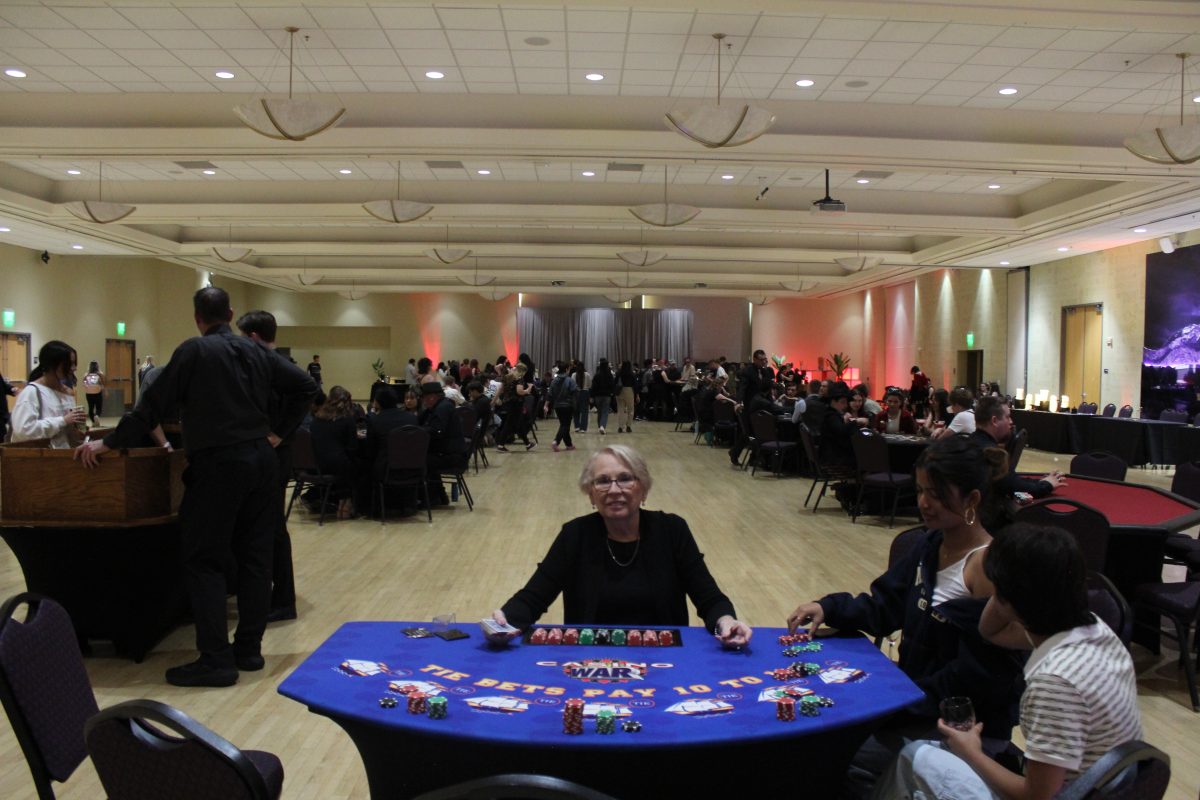






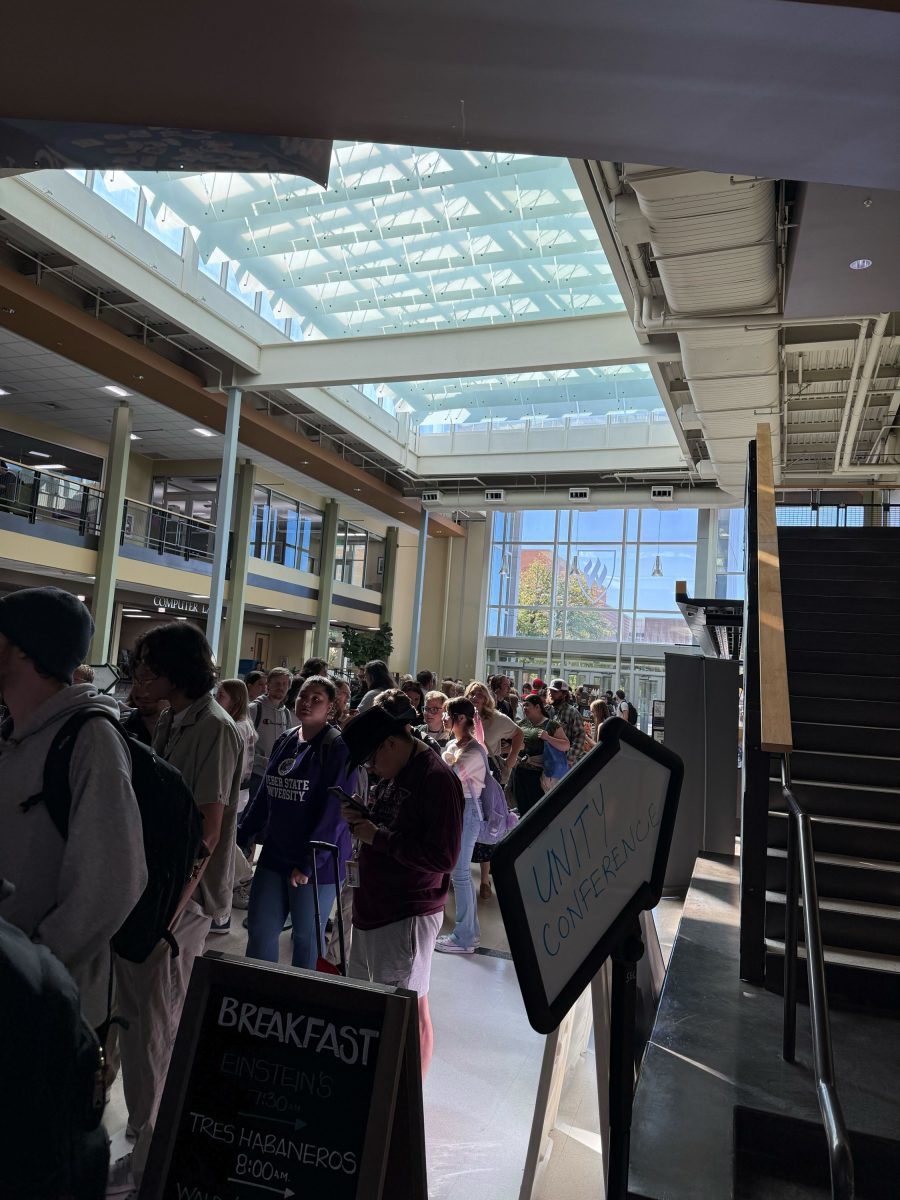
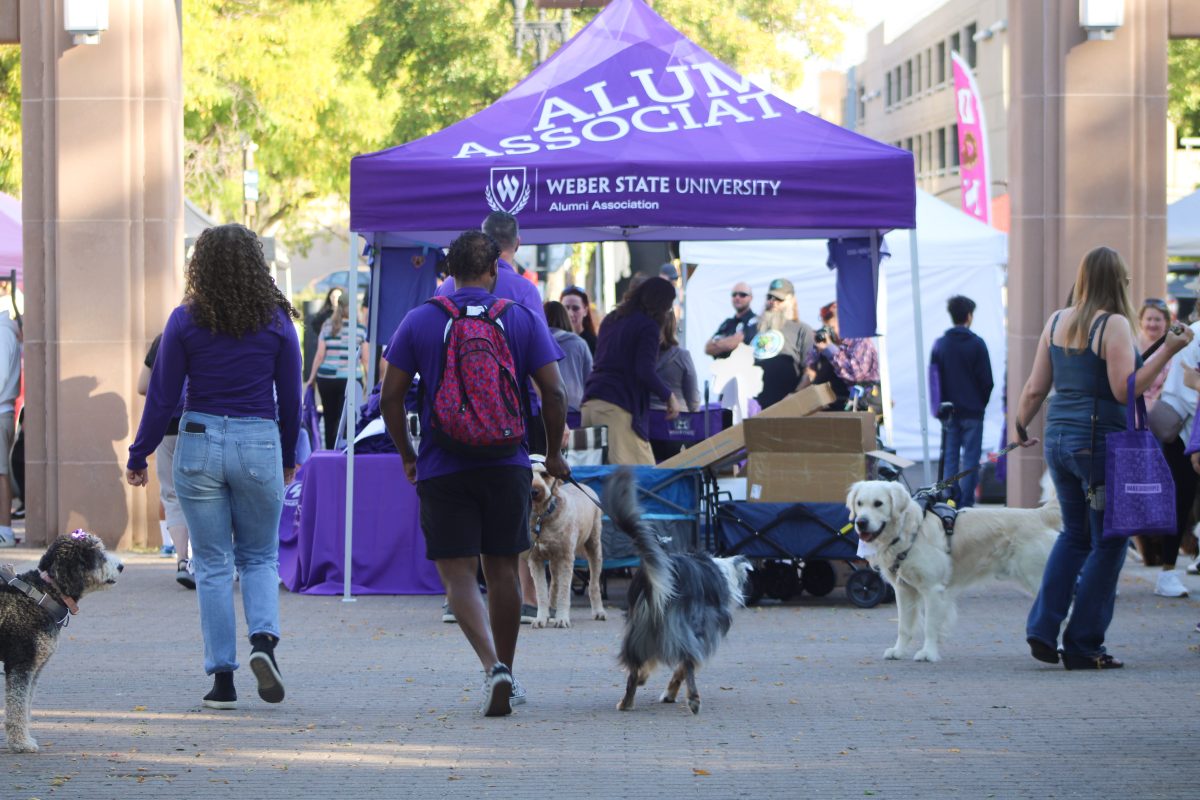
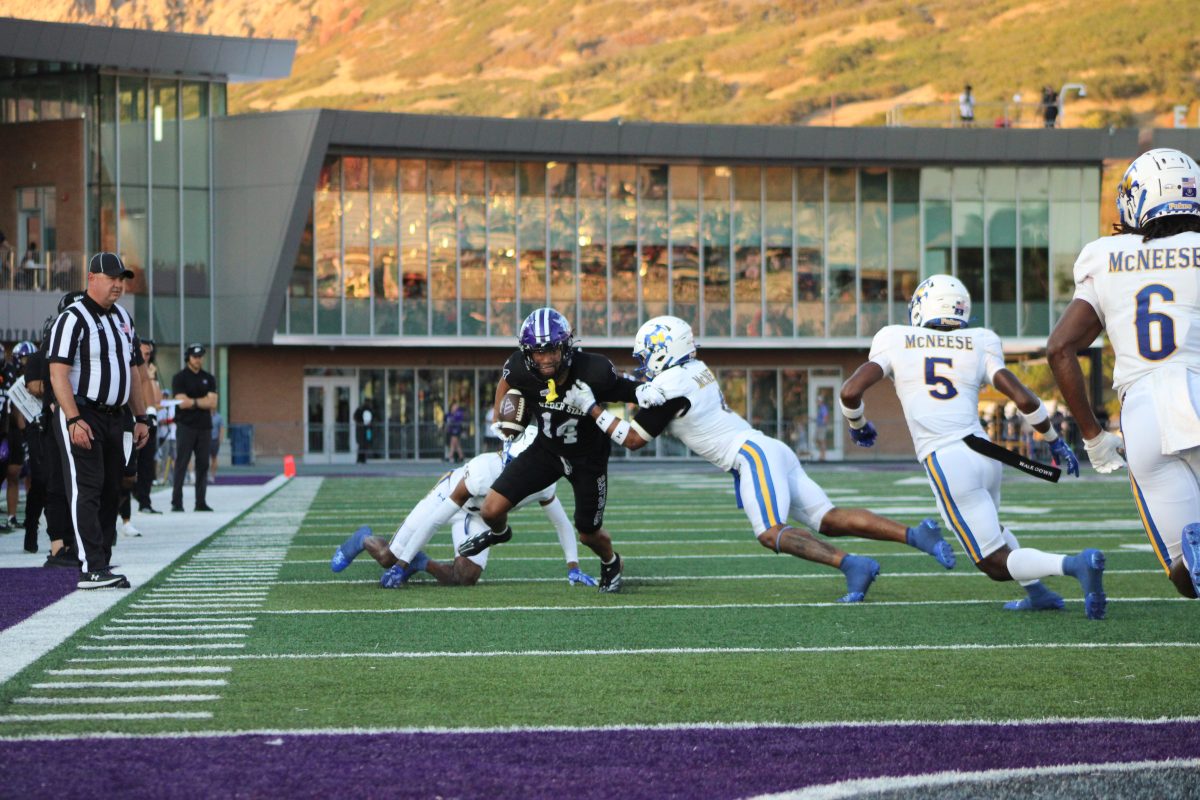

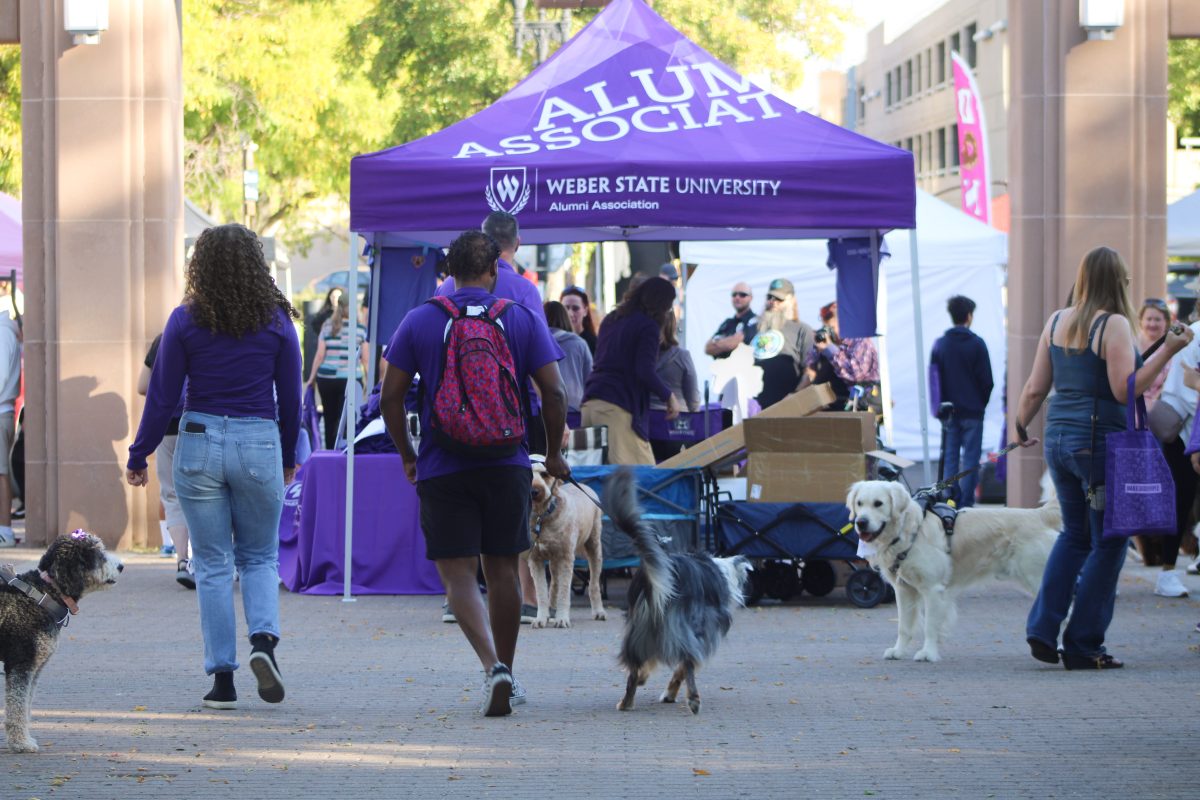

Kay A. Hoogland • Aug 17, 2024 at 9:52 am
Excellent reporting! I have followed this in other newspapers. This is the most thorough and best coverage I’ve found.